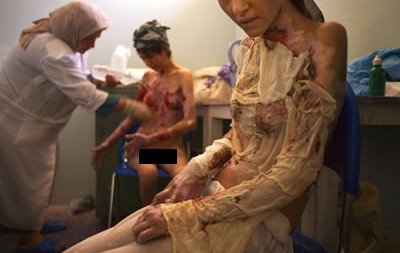Ahmad Qureshi
HERAT CITY: A council of Afghan clerics has issued a fatwa, banning women from traveling without a father, brother or other approved escort, even during the Hajj.

Due to crimes and restrictions on Afghan women in Herat, a large number of them resort to self-immolation.
The ruling by the Herat Religious Council also said Islam prohibited women, engaged in activities out of home, from wearing makeup.
Announcing the fatwa, tens of religious scholars asked the government to implement their advice. The clerics said they could not shut their eyes to the current situation.
Maulavi Muhammad Kababeyane, deputy head of the council, said travel without a mahram, or unmarriageable relative, raised "questions about a womans piety".
The legal opinion also applied to womens business trips, he said. Even going to Hajj without such a companion was a sin under Islamic Shariah, the scholar explained.
Although he supported female education, Kababeyane said women attending education programmes abroad without being accompanied by mahrams was against Islam.
Women could work outside of their homes only if they were properly dressed and wore no makeup, he said, suggesting short skirts and cosmetics attracted men’s attention.
The council urged the government to prioritise the implementation of the issues raised in the fatwa.
But Herat-based women organisations said the ruling ran counter to gender equality. "The fatwa is illogical," said Bahar Joya, who plans to go to India to study.
She said neither could her family afford to send with her a companion to India, nor could the host country sponsor the expenses of such a person.
Joya, who works in Herat, said piety was a personal issue and a Muslim woman could maintain it anywhere. Joya's husband said he had no problem with his wife going abroad alone.
Supportive of the Islamic hijab, social worker Muhammad Rafiq Shaheer believed the fatwa could not be enforced in the current situation.



